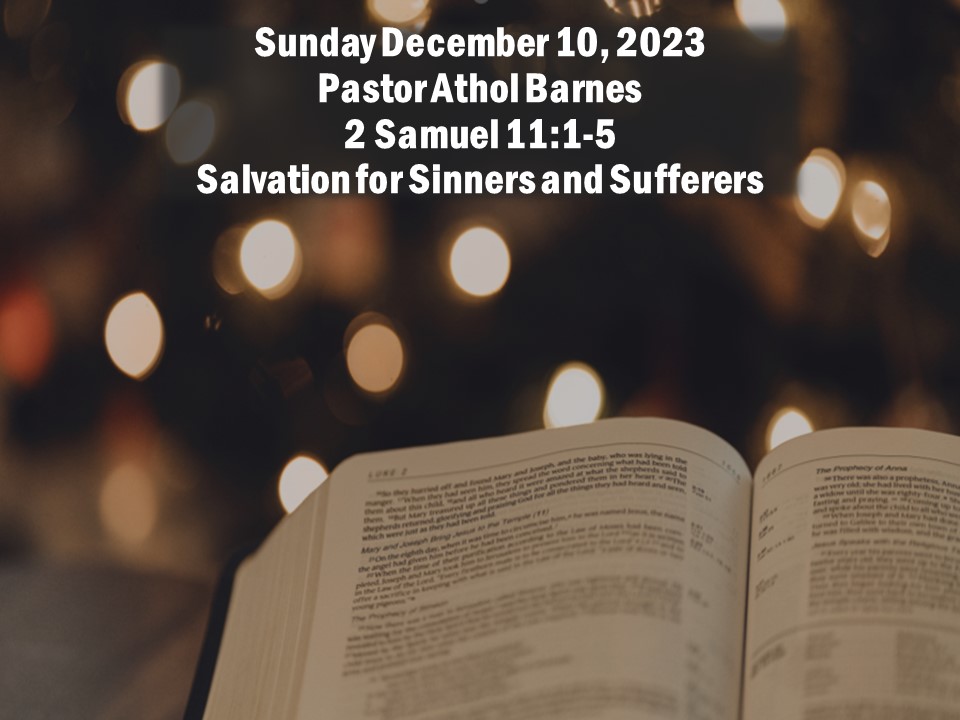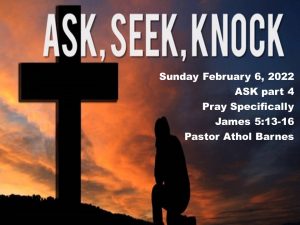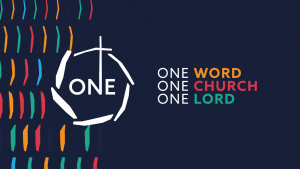
As we celebrate this Christmas season, we celebrate our savior who took on flesh to free us from sin. But more than freeing us from the bonds of sin, Jesus also came to bring healing and restoration. Healing for the sick, the broken hearted, and the abused.
God sent His son to provide a way for sinners to be forgiven and for those who have been sinned against to be healed.
During our lives, we find that we are sinners in need of forgiveness and at times we need Jesus to heal our brokenness because of sin.
Have you ever considered that the salvation that Jesus offers is wholeness? Eternal life is glorious and starts when you give your life to Jesus, but there is more that Jesus offers, wholeness, healing, and restoration.
The account of king David and Bathsheba in 2 Samuel 11 and 12 is a story of brokenness and pain because of sin. David tries to cover up his sin and he has Bathsheba’s husband killed in battle. Once Uriah is killed, David takes Bathsheba into his palace as one of his wives (2 Samuel 11:26-27).
David, one of the most celebrated heroes in the Bible, the second king of Israel, a war hero, and author of most of the Psalms, sins terribly.
As the account continues in 2 Samuel 12, we see that the prophet Nathan confronts David about his sin. Showing him that what he thought was hidden, was not hidden from God. David’s repentance is immediate, and it is proposed that the great repentance Psalm, Psalm 51 is penned as David cries out to God for forgiveness.
In response, Nathan declares that God has forgiven him and he will not die, but there will be terrible consequences for his sin. Multiple children died and a long list of pain and suffering followed David’s “private sin”. David realizes that his sin is a personal afront to God and he humbles himself in repentance.
The truth is that there are no secret sins and all sins lead to suffering. There are no private or hidden sins. Even if no-one knows about it, God sees, and it affects the body of Christ. The sins that we commit during the week, even if we think they are concealed, affect the entire church family.
As we gather to pursue the presence of God on a Sunday morning, we must come prepared and expectant. If we come in haphazardly or without any thought that we are gathering as the body of Christ to come and worship the Great I AM, not only will we miss out on a blessing, but we will impact the engagement of the church family.
Let us prepare our hearts and minds. Spend time on a Sunday morning in prayer and repentance, with the expectation that we will encounter the living God.
I guess the question is, how seriously do we take the privilege we have of gathering in God’s presence. How grateful are we for the truth of this season? Emmanuel, God with us!
David repents of his sins, and he is forgiven, but what about Bathsheba?
David needed forgiveness. Bathsheba was sinned against; her life was turned upside down. Her husband was killed, and she was taken against her will into the king’s palace as one of his wives. She experienced incredible trauma, and she needed healing.
The salvation that Jesus offers, not only offers forgiveness, but it also offers healing. Jesus came to bring healing and restoration. Healing for the sick, the broken hearted, and the abused.
God sent His son to provide a way for sinners to be forgiven and for those who have been sinned against to be healed. The Gospel is for sinners and sufferers alike.
The apostle Paul used the Greek word, “sozo” 29 times in the New Testament to define salvation. Like most Greek words, it has multiple deeper meanings, and it includes, salvation, saved, to be made well, cured, recover, and restored. “Sozo”, means wholeness.
When we hear the word salvation, we primarily think of forgiveness, but the Gospel also deals with the problem of suffering and restoring to wholeness.
The wholeness of salvation can be hard to measure. When we look at broken items, it is easy to see if they are repaired, put back together. Like a car that was in a wreck or a broken chair that is repaired. But wholeness in a person is much more difficult to measure.
The beauty of Christmas is that Jesus came as a baby, to live a perfect sinless life, he suffered a cruel death on a Roman cross as the spotless sacrifice for our sins, to pay the price that we could never pay. This same Jesus rose from the dead on the 3rd day and now is seated at the right hand of the Father in heaven, praying for us, interceding for us. Jesus paid the price for us to be reconciled with God and to be made whole. Physical and spiritual wholeness is available to us because of what Jesus has done for us.
When Jesus walked the earth, he experienced suffering, rejection, abuse, and pain. He identifies with our pain when we are called to endure suffering at the hands of others. He is not removed from pain. By identifying with pain, he provided a way for healing. He provides healing for brokenness, for the pain of Bathsheba and for you and me.
What are you dealing with that needs the power of the Gospel to heal today?










